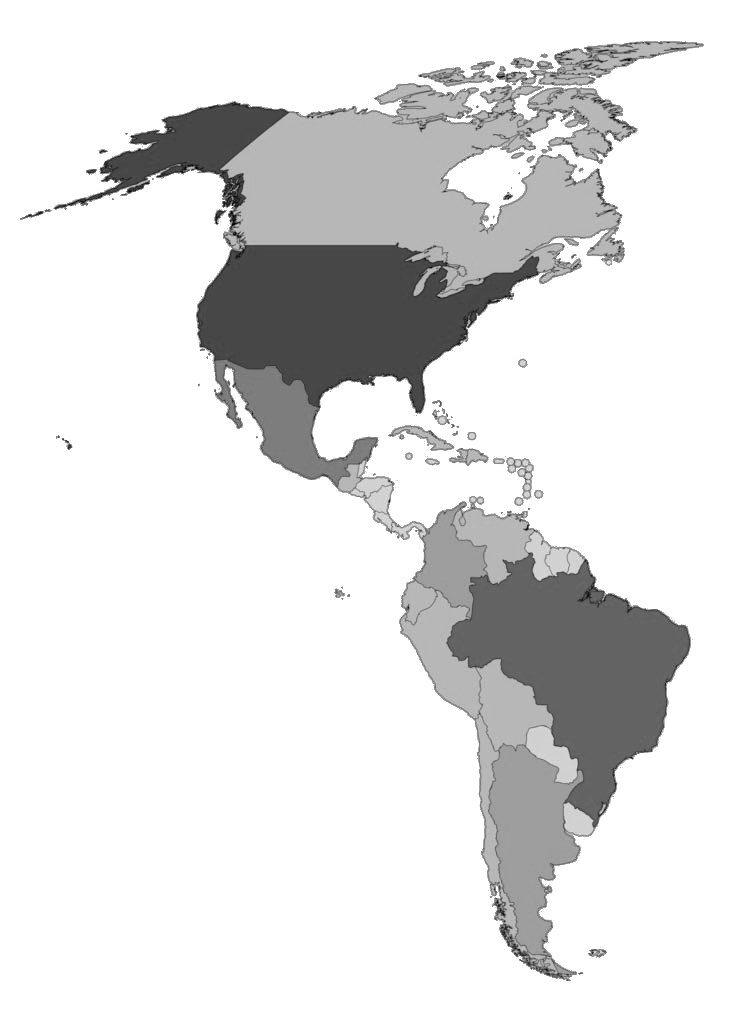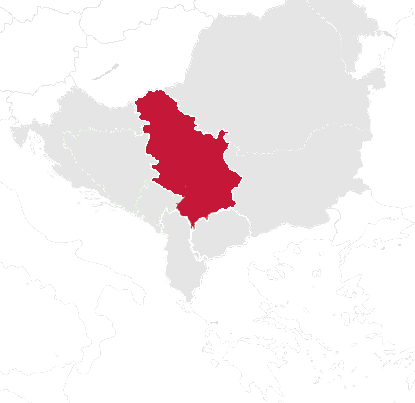History
THE INTERNATIONAL CONGRESS OF AMERICANISTS, 1875-2023
The International Congress of Americanists is a scientific activity of a long tradition. The first Congress was held in the city of Nancy in France, on August 25, 1875, called by the Société Américaine de France and they have met without interruption since then. Its immediate goal: “contribuer au progrès des études ethnographiques, linguistiques et historiques relatives aux deux Amériques, spécialement pour les temps antérieurs à Christophe Colomb, et de mettre en rapport les personnes qui s’intéressent à ces études”.
During the first ten versions of the International Congress of Americanists, the seat was in Europe. The first Congress in America was held in Mexico in 1895. Since then, it has been tried to alternate the seat between the old and new world.
Over time, the Congresses have expanded the range of subjects studied.Nowadays, they gather specialists in Anthropology, Archaeology, Art, Law, Economics, Education, Philosophy, Geography, History, Linguistics, Sociology, Urban Studies, Human Rights and other technological areas.
Today, the International Congress of Americanists (ICA) meets every three years. It is attended by a large number of participants engaging in a wide variety of scientific activities: symposia, conferences, meetings of international associations and organizations related to American studies, etc.
INTERNATIONAL CONGRESSES OF AMERICANISTS HELD SINCE 1875
1o – 1875, Nancy. President: Baron Guerrier de Dumast; General Secretary: Alfred Rambaud
2o – 1877, Luxembourg. President: Francois-Xavier Wurth-Paquet; General Secretary: Dr. Henrion
3o – 1879, Brussels.President: Baron A.C.A.L. Goethels; General Secretary: Anatole Bamps
4o – 1881, Madrid.President: José Luis Albreda; General Secretary: Cesáreo Fernández Duro
5o – 1883, Copenhagen. President: Johan Jakob A. Worsaae; General Secretary: W.A. Carteasen
6o – 1886, Turin.President: AriodanteFabretti; General Secretary: Guido Cora
7o – 1888, Berlin.President: WilhelmReiss; General Secretaries: Gustav Hellmann, Otto Olshausen
8o – 1890, Paris. President: Armand de Quatrefages de Brea; General Secretary: Desiré Pector
9o – 1892, Huelva.President: Antonio MaríaFabié; General Secretary: Justo Zaragoza
10o – 1894, Stockholm. Presidents: Gustav A. Tamm, Rudolf Virchow, Adolf E. Nordenskiold; General Secretary: Carl Bovallius
11o – 1895, Mexico City.President: JoaquínBaranda; General Secretary: Trinidad Sánchez Santos
12o – 1900, Paris. President: Ernest T. Hamy; General Secretary: Henri Froidevaux
13o – 1902, NewYork. President: Morris K. Jesup; General Secretary: Marshall H. Saville
14o – 1904, Stuttgart. President: Karl Von de Steinen; General Secretary: Kurt Lampert
15o – 1906, Quebec.President: Robert Bell; General Secretary: Narcisse E. Dione
16o – 1908, Vienna. President: WilhelmFreiherrVonWeckbecker; General Secretary: Franz Heder
17o – 1910 (FirtsPart), Buenos Aires.President: José NicolásMatienzo; General Secretary: Robert Lehmann-Nitsche
17o – 1910 (Second Part), Mexico City.President: Eduard Seler; General Secretary: Genaro García
18o– 1912, London.President: Clements Robert Markham; General Secretaries: F.C.A. Sarg, Adela A. Breton
19o – 1915, Washington. President: John W. Fisher; General Secretary: Alex Hrdlicka
20o – 1922, Rio de Janeiro. President: Antonio CarlosSimoens da Silva; General Secretary: Adolpho Morales de los Ríos
21o – 1924 (FirstPart), TheHague. President: TheodoreFélix Albert Delprat; General Secretary: D. Alberts
21o – 1924 (SecondPart), Göteborg.President: OscarVonSydow; General Secretary: Erland H. Nordenskiold
22o – 1926, Rome.President: AmedoGiannini; General Secretary: Guido Valeriano Callegari
23o – 1928, NewYork.President: FranzBoas; General Secretaries: P.E. Goddart, Nels C. Nelson
24o – 1930, Hamburg.President: Georg ChristianThilenius; General Secretary: Rudolf Grossmann
25o – 1932, La Plata.President: RicardoLevene; General Secretary: Fernando Márquez Miranda
26o – 1935, Seville.President: GregorioMarañónPosadillo; General Secretary: José María Torroja Miret
27o – 1939 (FirstPart), MexicoCity.President: AlfonsoCaro; General Secretary: Pablo Martínez del Río
27o – 1939 (SecondPart), Lima. President: AlfredoSolf y Muro; General Secretary: Jorge Basadre
28o – 1947, Paris.President: Paul Rivet; General Secretary: André Leroi-Gourhan
29o – 1949, New York. President: Alfred L. Kroeber; General Secretary: Alfred V. Kidder
30o – 1952, Cambridge. President: J. Eric S. Thompson; General Secretary: Hermann J. Braunholtz
31o – 1954, Sao Paulo.President: Paul Rivet; General Secretary: Herbert Baldus
32o – 1956, Copenhagen.President: Kaj Birket-Smith; General Secretary: Jens Yde
33o – 1958, San Jose de CostaRica.President: Doris Stone; General Secretaries: Carlos Meléndez, Alvar Antillón
34o – 1960, Vienna.President: Robert Heine-Geldern; General Secretary: Anna Hohenwart-Gerlachstein
35o – 1962, MexicoCity.President: IgnacioBernal; General Secretary: Miguel León Portilla
36o – 1964, Madrid-Barcelona-Seville.President: Luis PericotGarcía; General Secretary: José Alcina Franch
37o – 1966, Mar del Plata.President: Alberto RexGonzález; General Secretary: Víctor A. Nuñez
38o – 1968, Stuttgart-Munich. President: Hermann Trimborn; General Secretary: Otto Zerries
39o – 1970, Lima.President: José Matos Mar; General Secretary: Fernando Fuenzalida Vollmar
40o – 1972, Rome-Geneve.President: Ernesta Cerulli; General Secretary: Italo Signorini
41o – 1974, Mexico City.President: GuillermoBonfilBatalla; General Secretary: Enrique Florescano Mayet
42o – 1976, Paris.President: Claude Lévi-Strauss; General Secretary: Jacques Lafaye
43o – 1979, Vancouver.President: CyrilBelshaw; General Secretary: Alfred Siemens
44o – 1982, Manchester.President: Harold Blakemore; General Secretaries: John Fisher, David Fox, David Preston
45o – 1985, Bogota.President: Rafael Rivas Posada; General Secretaries: Nohra Rey de Marulanda, Jorge Orlando Melo, Marco Palacios, Manuel Rodríguez Becerra
46o – 1988, Amsterdam.President: HarryHoetink; General Secretaries: Kees den Boer, Jan Kleipenning, Jan Lechner, Hans de Wit
47o – 1991, New Orleans. President: Richard E. Greenleaf; General Secretary: Munro S. Edmonson
48o – 1994, Stockholm-Uppsala.President: Magnus Mörner; General Secretary: Jan-Ake Alvarsson
49o – 1997, Quito. President: Hernán A. Andrade; General Secretary: Segundo E. Moreno Yáñez
50o – 2000, Warsaw.President: AndrzejDembicz; General Secretary: Mariusz Ziólkowski
51o – 2003, Santiago de Chile. President: Luis A. RiverosCornejo; General Secretary: Milka Castro Lucic
52o – 2006, Seville.President: MiguelFlorencioLora; General Secretaries: Antonio Acosta Rodríguez, María Luisa Laviana Cuetos
53o – 2009, Mexico.President: ElioMasferrer Kan; General Secretaries: Elizabeth Díaz Brenis, Jorge René González Marmolejo
54o – 2012, Viena.President: Martina Kaller-Dietrich; General Secretariess: Claudia Augustat, Josefina Echavarría, Georg Grünberg, David Mayer, Berthold Molden, Stefanie Reinberg
55o – 2015, San Salvador. Presidente: Walter Raudales, General Secretaries: Ramón Rivas (UTEC),CatalinaMachuca (UPES)
56o – 2018, Salamanca.President: Manuel AlcántaraSáez; General Secretary: Francisco Sánchez López
57o – 2023, Foz de Iguazu, Brasil.President: Aldo Nelson Bona;General Secretary: Marcio Fernandes
ICA Regulations
Art. 01. The International Congress of Americanists (ICA) has as its object the historical and scientific study of the two Americas and their inhabitants, mainly from the social sciences and humanities.
Art. 02. The Congress will take place every two to three years; as far as possible, it shall alternate its sessions between Europe and the Americas without excluding other continents. It cannot meet consecutively in the same country.
Art. 03. ICA is made up of a Permanent Committee and people who actively participate in the Congress through the presentation of a paper.
Art. 04. The Permanent Committee is made up of two people designated by the Organizing Committee of each Congress, who will preferably be those who have held the Presidency or General Secretariat. It is responsible for maintaining the tradition of the ICA, designating the venue, ensuring the correct execution of the regulations, and dealing with unforeseen difficulties that may arise in the interval between two Congresses. Those who have not participated in three consecutive Congresses will lose their status as members of the Permanent Committee unless there is force majeure.
Art. 05. The Permanent Committee will receive the candidatures for the ICA headquarters, evaluate them, and designate the new headquarters. If two or more candidates have similar evaluations, the designation will be submitted to Congress for consideration in a plenary session.
Art. 06. Each headquarters will have an Organizing Committee that will designate a Presidency, a General Secretary, and the number of members they consider appropriate.
Art. 07. The Organizing Committee will set the date of the Congress, the registration fee, and its development format. In addition, it will establish the necessary communication and information mechanisms both with the Permanent Committee and with the people who participate in the Congress. You are not required to publish the papers presented.
Art. 08. The official languages of the Congress are Spanish, English, French, German, Portuguese, and Italian, with the addition of the language of the country in which the Congress takes place in each case.
Art. 09. The Organizing Committee of each Congress may award honorable mentions to outstanding individuals for their contributions to American studies.
Art. 10. Among its members, the Permanent Committee will designate a Liaison Subcommittee, consisting of the person who holds its Chairmanship, its Secretary, and a third member from the continent where the Congress is held. Its function will be to advise and cooperate with the Organizing Committee on all matters related to the upcoming Congress.
Art. 11.Any modification of these statutes must be proposed and approved in a Plenary Session.
All payments will be made in Serbian currency, the dinar (RSD).
The amount charged to your payment card will be converted to your local currency at the exchange rate used by the card issuer, which cannot be known to us at the time of the transaction.
Please note that this conversion may result in a slight difference from the original price stated on our website.
© CENTRO IBEROAMERICANO 2025, Developt by ICA web team













